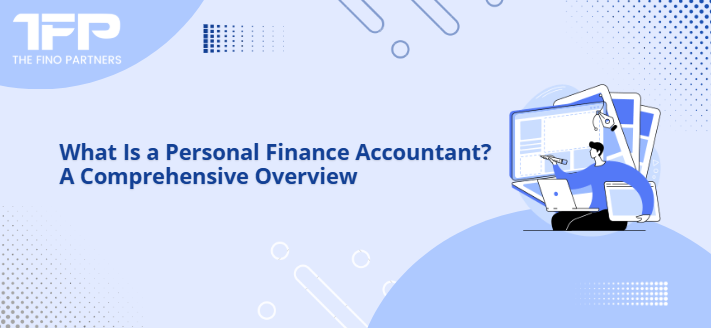Caring for your money is piecing together a puzzle with gaps. You have to deal with savings, investments, and taxes, but where do you start? That is where personal finance accountants step in. They're your money sidekicks, advising you on matters of money with professionalism. But what exactly do personal finance accountants do, and why are they essential for US individuals? This comprehensive overview explains their role, services, and value. We’ve studied top-ranking blogs to deliver accurate, practical insights for the US audience. Let’s unpack what makes personal finance accountants a must-have for your financial journey.
Understanding Personal Finance Accountants
Personal finance accountants are experts in handling personal finances. Unlike corporate accountants, they handle your money issues. Think about taxes, budgeting, or saving up for a big purchase. They tailor their services to your unique needs, whether you are a teacher, business owner, or retiree. With credentials like CPA or EA, they're specialists in US tax law and financial planning. Their purpose? To make your finances simple, keep them in line, and build wealth. Personal finance accountants are money coaches, bringing clarity and guidance.
Core Services of Personal Finance Accountants
Personal finance accountants provide a range of services to keep your finances on track. Here’s what they offer:
Tax Preparation and Filing
Taxes are complicated, with so many statutes and schedules stacking up. Your personal finance accountants fill out and file your returns correctly. What you need is guidance that will help you meet IRS deadlines without incurring penalties. Their knowledge assists you in claiming deductions such as mortgage interest or charitable contributions, maximizing your refund.
Tax Planning Strategies
Beyond filing, personal finance accountants plan for future tax savings. They recommend strategies like contributing to IRAs or timing capital gains. In 2025, with potential tax code changes, their foresight is invaluable. They align your financial moves to minimize tax liabilities.
Budget Creation and Management
Struggling to save? Personal finance accountants craft realistic budgets. They examine your expenditure and income, identifying areas where you can reduce spending. They monitor spending to keep you in check, allowing you to have money for emergencies or objectives.
Debt Management Solutions
Debt can derail your plans. Personal finance accountants design repayment strategies. They prioritize high-interest debts and suggest consolidation options. Some even negotiate with creditors to lower rates, helping you regain financial freedom.
Investment Guidance
Want to grow your wealth? Personal finance accountants advise on investments. They evaluate your tolerance for risk and suggest alternatives such as stocks or mutual funds. Although they are not financial advisers, they work together with your portfolio to implement tax-saving strategies.
Retirement and Estate Planning
Planning for retirement or passing on wealth? Personal finance accountants map out your future. They calculate how much you need to save for retirement. They also guide on estate plans, like trusts, to protect your assets and reduce taxes for heirs.
Why Personal Finance Accountants Matter
Hiring personal finance accountants offers distinct advantages. Here’s why they’re worth it:
Expertise in Complex Regulations
US tax laws are intricate, with over 70,000 pages in the tax code. Personal finance accountants stay updated on these rules. They ensure your filings comply while leveraging loopholes to your benefit. This expertise prevents costly errors.
Customized Financial Solutions
Every individual's money story is different; there isn't a one-size-fits-all solution to finances. That's why personal finance accountants take the time to really get to know you, your work, your dreams, your debt, and all the things in between. They don't simply do arithmetic; they listen, learn, and build plans that work for your life. It's this individualized care that distinguishes them from generic software. You're not merely another document on their desk; you're an actual person with actual objectives, and they're here to assist you in achieving them.
Time Efficiency
Managing finances takes hours, especially during tax season. Personal finance accountants handle the heavy lifting. They organize records, file forms, and track deadlines. This saves you time for work, family, or relaxation.
Financial Education
Personal finance accountants don’t just do the work, they teach you. They explain tax rules or budgeting tricks in simple terms. This helps you with ample knowledge in financial literacy, and helps in making proper decisions.
Who Needs Personal Finance Accountants?
Not sure if you need one? These groups benefit most from personal finance accountants:
Self-Employed Individuals
Freelancers and contractors deal with quarterly taxes and complex deductions. Personal finance accountants streamline these tasks, ensuring compliance and maximizing write-offs.
Families with Multiple Income Streams
If you and your spouse have side gigs or investments, your finances get messy. Personal finance accountants organize your income and optimize tax strategies.
Pre-Retirees and Retirees
Nearing retirement? Personal finance accountants plan withdrawals to minimize taxes. For retirees, they manage Social Security and pension income efficiently.
First-Time Homebuyers
Buying a home involves tax credits and mortgage deductions. Personal finance accountants guide you through these benefits, ensuring you don’t miss out.
How to Find the Right Personal Finance Accountant
Choosing the right accountant is crucial. Follow these tips:
Verify Qualifications
Look for a Certified Public Accountant (CPA) or Enrolled Agent (EA). CPAs handle broad financial needs, while EAs excel in tax matters. Check their credentials via state boards or the IRS directory.
Seek Relevant Experience
Find someone who’s worked with clients like you. If you’re a gig worker, choose an accountant familiar with 1099s. Ask about their track record during interviews.
Evaluate Communication Style
A good accountant explains complex ideas clearly. They should be responsive via email or phone. Test this during your initial consultation.
Understand Pricing
Fees vary by service. Tax filing costs $200-$1,000, while hourly rates range from $100-$400. Request a clear fee structure to avoid surprises.
Use platforms like LinkedIn or the NAEA directory to find candidates. Local firms or referrals from trusted contacts also work.
Costs of Hiring Personal Finance Accountants
Hiring personal finance accountants isn’t free, but it’s an investment. Here’s a breakdown of typical costs in the US:
- Tax Preparation: $200-$500 for basic returns; $1,000+ for complex ones.
- Tax Planning: $500-$2,000 annually, depending on complexity.
- Budgeting Services: $200-$600 monthly for ongoing support.
- Debt or Investment Advice: $100-$300 per session or part of a package.
Costs depend on location and expertise. Urban areas like New York charge more than rural ones. Always compare quotes to find the best value.
Tips for Maximizing Your Accountant’s Value
To get the most from personal finance accountants, build a strong partnership.
- Start by providing complete records. Provide all financial records, such as W-2s, receipts, or bank statements, in a timely and orderly manner. This saves time and is accurate, particularly for tax returns or budgeting.
- Next, be open about your objectives. Whether launching a side business, purchasing a condo, or saving for children's education, make these aspirations known. Clear objectives enable your accountant to customize strategies, such as tax-favored accounts or debt strategies.
- Then, actively follow their advice. If they suggest cutting subscriptions or contributing to a 401(k), implement these changes. Their expertise only works if you act on it. Schedule regular reviews, preferably quarterly, to remain in sync. These check-ins identify problems early, such as overspending or forgotten deductions, and keep your plans on track.
- Finally, engage with their insights. Ask questions about their recommendations, like how a Roth IRA benefits you. This builds your financial knowledge, making you a smarter partner.
By being proactive and open, you’ll unlock the full potential of personal finance accountants, turning their services into a powerful tool for your financial success.
Also Read | Why You Need a Personal Accountant for Your Business?
Final Thoughts
Personal finance accountants are your key to financial success. They do taxes, budgets, and planning. Their professional skills save time, alleviate stress, and unlock savings. If retired, self-employed, or purchasing a home, they provide solutions. Begin by verifying credentials and comparing costs. Utilize online directories, recommendations, or neighborhood practices to determine the right match.
With The Fino Partner’s personal finance accountants by your side, you'll be in control of your money, and you'll believe in your future.
Are you ready to make your finances easy? Contact us today!




























